Replaced Car Battery Now AC Doesn’t Work – Fix Now In 2024
Table of Contents
Does Changing Car Battery Affect AC?
No, changing your car battery does not directly affect your AC system because these two components operate independently. Yet, during the battery change, it’s crucial to disconnect the negative terminal to avoid mishaps.
Opt for the correct battery size per your vehicle’s needs to power accessories effectively. Checking your owner’s manual or seeking advice from a mechanic is wise. Lastly, responsibly recycle old batteries; many auto parts stores accept them for recycling.
Quick Learnings To Be Done After A Battery Replacement:
After swapping my car battery, I learned that certain accessories, like the A/C and radio, might temporarily act up due to power disruptions affecting the ECU. It was a bit disconcerting, but I discovered such issues are common post-replacement.
Initially, my A/C wasn’t functioning correctly, and the radio asked for a PIN after the battery switch. Feeling perplexed, I researched quick solutions, like entering the radio PIN code and addressing potential throttle body-related stalls.
As I navigated through these challenges, I realized that these disruptions were part of the adjustment process for the ECU systems. Patience and a bit of reprogramming for specific accessories were key.
Also Read: What RPM To Charge Car Battery
Possible Causes Of AC Failure After Battery Replacement:
1. Physical Damage during Battery Replacement:
AC not working after changing battery? If there was any accidental damage to the AC lines or components while replacing the battery, it could lead to problems. For instance, a leaking lead acid battery or mishandling during the installation process might cause damage to the AC system. Even a minor bump to an AC line could result in a refrigerant leak.
2. Battery Voltage Reset:

Also Read: How To Fix Reverse Polarity On A Car Battery
3. Low Refrigerant Pressure:
4. Faulty Compressor Clutch:

Also Read: Why Is My Car Battery Showing 15 Volts
5. Blown Fuse Or Relay:
6. Electronic Control Module (ECM) Failure:

Also Read: How Long Does It Take To Charge A Car Battery At 6 Amps
How Can I Get My AC To Start Working Again?
Having recently faced the challenge of my AC not working after a car battery replacement, I delved into personalized troubleshooting to restore its functionality:
1. Resetting the AC System:
Sometimes, a simple reset might be necessary to synchronize the AC system after a battery replacement. Disconnect the battery for a few minutes, reinstall it, and then turn the key to the “run” position inside the car.
Additionally, unplugging the climate control or HVAC fuse while the car is off, waiting for 30 seconds, and then plugging it back in can also be attempted.
2. Check The AC System Before And After The Battery Replacement:

Also Read: Car Only Starts When Jumped Battery Good
3. Test The Battery And The Charging System:
4. Top Up the Refrigerant And Fix Any Leaks:
Considering the importance of refrigerant levels, I ensured they were adequate. If in doubt, seeking professional help for a refrigerant check was part of my personalized strategy.

Also Read: Lightweight Car Battery Daily Driver
5. Check And Replace The Fuses And Relays:
6. Diagnose And Repair Or Replace The Compressor Clutch Or The ECM:


Also Read: Car Stalling After Battery Change
Car AC Not Working After Battery Died? Exploring Causes and Fixes:
If your car battery died now ac doesn’t work, there are some potential causes of ac not working after battery died:
- Loss of Settings: After a battery dies, AC settings like fan speed and temperature may reset. Adjustments are needed for optimal comfort.
- ECU Reset: Battery disconnection triggers an ECU reset. Patience is key as the ECU readjusts for better AC performance.
- Fuse Problems: Check for blown fuses in the AC circuit. Replace any blown fuses with identical ones for seamless operation.
- Low Refrigerant Levels: Insufficient refrigerant can impact the AC compressor. Recharge the refrigerant for proper AC function.
- AC Compressor Clutch: Manually activate or reset the AC compressor clutch post-battery disconnect. Refer to the manual or consult a mechanic.
- AC Control Module: Malfunctioning AC control module? Reprogram or reset it for restored functionality.
- Battery Voltage: Ensure correct battery voltage. A weak battery may compromise the AC system’s efficiency.
- Sensor Calibration: Modern cars may need sensor recalibration post-battery removal. Visit a dealership or use diagnostic tools for a quick reset.

replaced battery now AC blows hot:
AC not blowing cold air after battery change? If you’ve recently replaced your car battery and now find that the AC is blowing hot air, you can try resetting the HVAC module with the following steps:
To reset the HVAC (Heating Ventilation and A/C) module, perform a power cycle by removing the HVAC/ECAS fuse from the underhood fuse block.
With the vehicle turned off, carefully remove the HVAC/ECAS fuse. Leave the fuse out for approximately 2 minutes. This allows the HVAC module to power down completely. After the 2-minute interval, reinsert the HVAC/ECAS fuse into its original slot. Ensure it is securely and correctly placed.
Blower Motor Won’t Work After Changing Battery:
If your blower motor isn’t functioning after replacing the battery, follow these steps to troubleshoot the issue:
- Battery Installation: Ensure the new battery is correctly installed and all connections are securely tightened.
- Fuse Inspection: Check the fuse related to the blower motor. If it’s blown, replace it with a new one of the same amperage rating.
- Wiring Examination: Inspect the wiring leading to the blower motor for any signs of damage, fraying, or loose connections. Repair or replace damaged wires, and secure loose connections.
By systematically checking these components, you can often identify and resolve the problem preventing your blower motor from working properly after a battery replacement.
Related Questions:
1. How Do I Reset My AC After Changing The Battery?
2. How Long Does It Take For An AC To Reset Itself?
3. Can Dead Batteries Stop the AC From Working?
4. is climate control not working after battery change?
Consider performing a battery cable reset. This process expedites the discharge of capacitors, clearing and resetting volatile memory in most control units. It’s akin to the effect of removing and reinstalling a battery in a problematic cell phone.
5. Why is my AC not working after battery change thermostat?
If your AC isn’t working after changing the thermostat battery, it could be due to a tripped circuit breaker or blown fuse. These issues often result from power surges, causing the electrical system to shut off. Check and reset the circuit breaker or replace blown fuses to restore AC functionality.
6. Can a bad alternator cause your AC not to work?
Yes, a bad alternator can indeed cause your AC not to work. If the alternator is failing, it can result in a lack of power for the AC and other electronics. This may lead to the AC operating at a slower speed than usual or failing to work altogether.
7. Do you have to reset a thermostat after changing batteries?
Yes, When changing batteries in a thermostat that relies on them, a reset may be necessary to ensure optimal functionality. Additionally, during transitions between heating and cooling seasons, performing a reset can help adjust temperature settings to align with the requirements of the new season.
8. How long does it take for a AC to reset itself?
After turning off your air conditioner, please wait 30 minutes before turning it back on. Resetting the internal circuitry is essential for optimal performance. Flip the circuit breaker switch to the “on” position to resume regular operation.
9. Will replacing the car battery affect the settings of my AC system?
Yes, it’s possible. When the car battery is replaced, the AC settings may reset, including fan speed, temperature, and mode. It’s recommended to check and readjust these settings if needed.
10. Can a weak or failing battery contribute to AC problems?
Yes, a weak or failing battery may not supply enough energy to run the AC system efficiently. It’s essential to ensure that the battery voltage is set correctly.
Conclusion:
Having recently changed my car battery, I realized that what seemed like a routine maintenance task could unexpectedly impact various auto components, including the AC. When my AC started acting up post-replacement, it was a moment of concern. Instead of panicking, I took a proactive approach, delving into troubleshooting to identify the underlying issue. Following the tips and recommendations outlined in this article, you can restore your car’s AC function and enjoy a comfortable and safe ride in any weather condition.
Also Read:
- Why Does My Car Battery Get Hot When Charging
- Can Bottled Water Be Added To A Battery
- Car Alarm Goes Off When Charging Battery
- Will Car Alarm Go Off If Battery Dead
References:
- https://www.quora.com/Can-changing-a-car-battery-affect-the-air-conditioning
- https://www.taurusclub.com/threads/got-a-new-battery-now-my-air-conditioner-doesnt-work-suggestions.309393/
- https://www.reddit.com/r/MechanicAdvice/comments/8apf01/ac_not_working_after_battery_replacement/
- https://mechanics.stackexchange.com/questions/26994/when-you-replace-a-car-battery-would-anything-in-the-a-c-system-be-touched

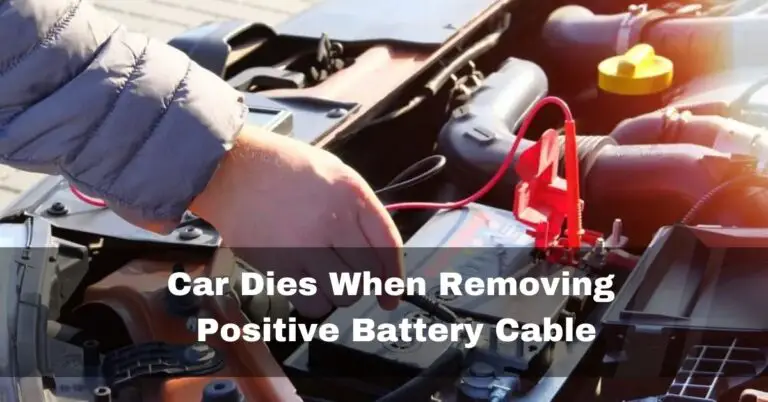
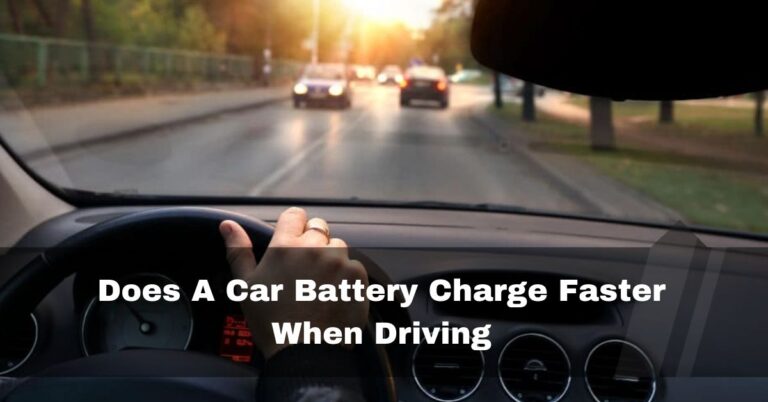
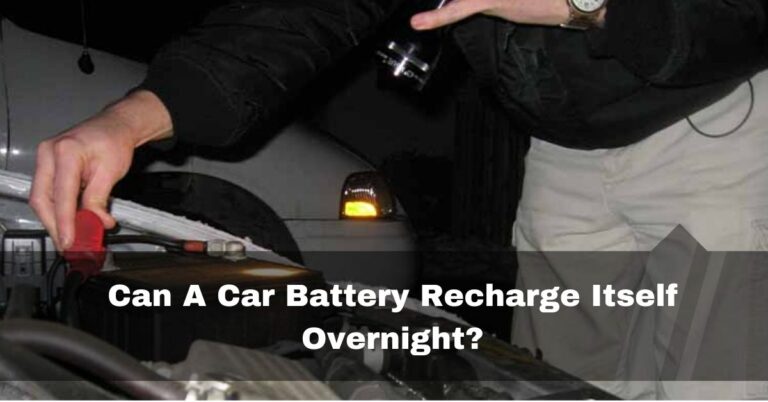
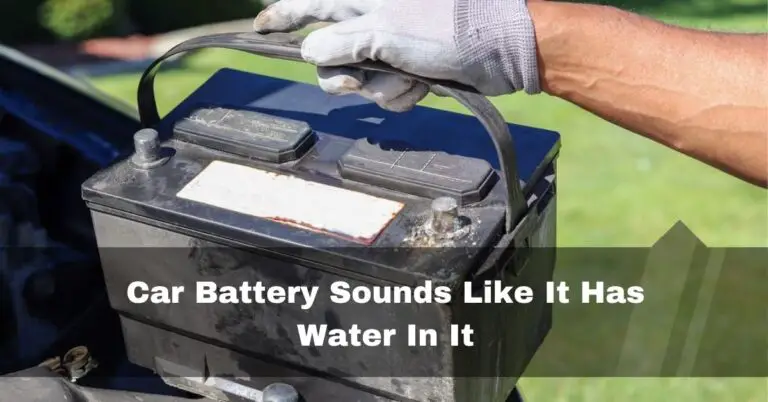
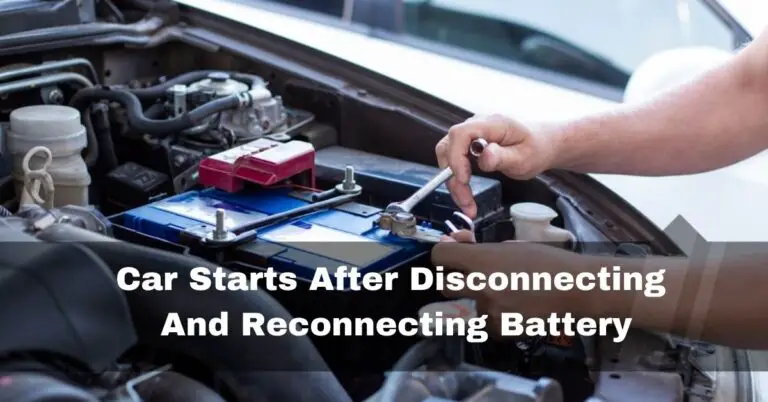
![Car Inspection After New Battery – [2024] Quick Inspection](https://vehicleslounge.com/wp-content/uploads/2023/10/Car-Inspection-After-New-Battery-768x402.jpg)
